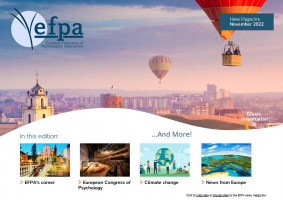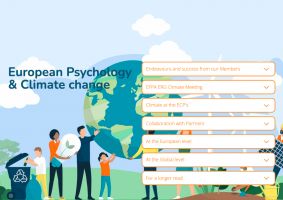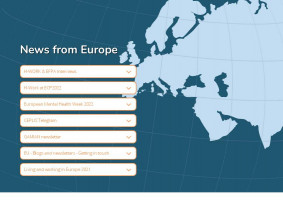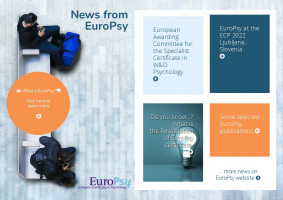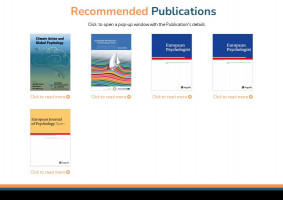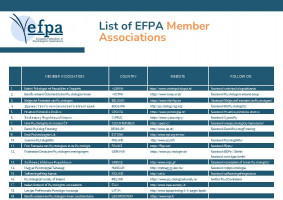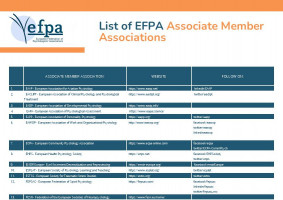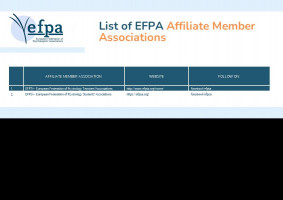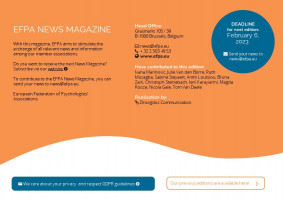Recommended Publications
Click to open a pop-up window with the Publication's details
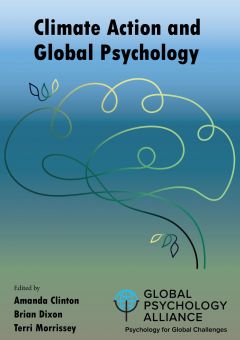
Click to read more
Climate Action and Global Psychology
By Global Psychology Alliance
Climate Action and Global Psychology offers a unique, multi-national perspective on organised psychology’s nascent collaborative efforts to address the world’s climate crisis.
This volume is a combination of theoretical and empirical work, varying according to section and topic. Leadership models related to major global crises like climate tend to be more theoretical, while chapters on projects in specific countries are more empirically oriented. The efforts of global psychology and its constituent professional organisations must address the need to understand the imminent threats posed for Indigenous peoples by climate change and seek ways to ensure psychology empowers and supports the actions of their people.
Learn more on the New Zealand Psychological Society website
Click to read more
Sustainable development in the European Union — Monitoring report on progress towards the SDGs in an EU context — 2022 edition
Eurostat
Sustainable development is firmly anchored in the European Treaties and has been at the heart of European policy for a long time. The 2030 Agenda for Sustainable Development and its 17 Sustainable Development Goals (SDGs), adopted by the UN General Assembly in September 2015, have given a new impetus to global efforts for achieving sustainable development. The EU is fully committed to playing an active role in helping to maximise progress towards the Sustainable Development Goals. This publication is the sixth of Eurostat’s regular reports monitoring progress towards the SDGs in an EU context. The analysis in this publication builds on the EU SDG indicator set, developed in cooperation with a large number of stakeholders. The indicator set comprises around 100 indicators and is structured along the 17 SDGs. For each SDG, it focuses on aspects that are relevant from an EU perspective. The monitoring report provides a statistical presentation of trends relating to the SDGs in the EU over the past five years (‘short-term’) and, when sufficient data are available, over the past 15 years (‘long-term’). The indicator trends are described on the basis of a set of specific quantitative rules. This 2022 edition also analyses the COVID-19 pandemic’s impacts during 2020, 2021 and the beginning of 2022 that are visible in Eurostat’s official statistics.
Download publication as PDF or order eBook here
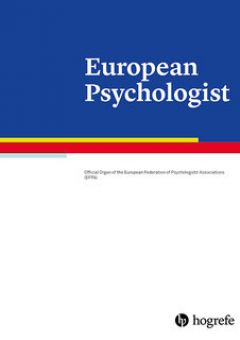
Click to read more
The European Psychologist -Vol 27. Issue 2. 2022
Special Issue: Youth in the Digital Age: Consequences for Development and Education
Editorial
Digital Revolution and Youth : Consequences for Their Development and Education
Original Articles and Reviews
Digital Literacy and Online Resilience as Facilitators of Young People’s Well-Being? A Systematic Review
Risks and Opportunities for Youth in the Digital Era. A Cyber-Developmental Approach to Mental Health
Digital Engagement and Academic Functioning. A Developmental-Contextual Approach
Parental Mediation Strategies and Their Role on Youths’ Online Privacy Disclosure and Protection. A Systematic Review
Cyberbullying and Cyber Victimization as Online Risks for Children and Adolescents

Click to read more
The European Psychologist - Vol 27. Issue 3. 2022
Special Issue: Creativity
Editorial
Creativity Today. Current Work From European Psychology
Original Articles and Reviews
Intra-Individual Variability in Creativity. Nature, Measurement, and Prospects
Dynamic Assessment of Creativity for Diagnostic Purposes. Combining the Sociocultural Approach to Creativity and Creative Cognition in Practice
Ecological Momentary Assessment of Creative Ideation. Measuring Creative Potential in an Everyday Life Context
The Dynamic Creativity Framework. Theoretical and Empirical Investigations
Creativity and Interdisciplinarity. Encounter of Two Fields of Study and Foundations for a Happy Marriage
Open Access
Creativity in an Affective Context.Reappraisal Inventiveness and Malevolent Creativity as Extensions of Creativity Research Toward More Real-World Creative Behavior
Connected Creativity.The Impact of Web Search on Everyday Creative Thinking
Immersive Virtual Environments’ Impact on Individual and Collective Creativity. A Review of Recent Research
Social Representations Theory in Creativity Research. Under-Exploited Perspectives
School Does Not Kill Creativity
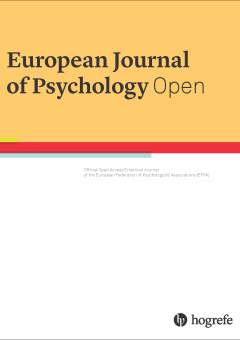
Click to read more
European Journal of Psychology Open - Vol 81. Issue 2. 2022
Editorial
The Role of Emotion Regulation During the Covid-19 Pandemic and Beyond
Original Articles
Psychologists’ Experiences Who Managed Waitlists in Mental-Health Services During the COVID-19 Lockdown. A Mixed-Method Study
Beyond “Cold Emotion and Rumination”. A Qualitative Study on the Nature and Attributes of Unforgiveness
